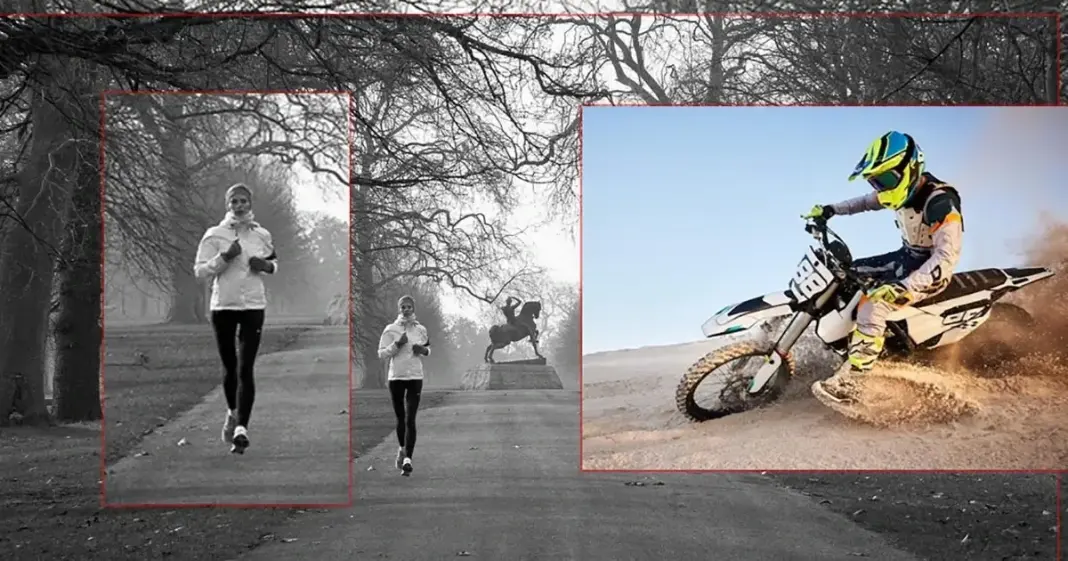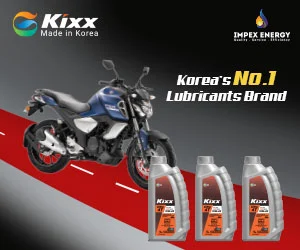Fitness Concerns For Riding A Motorcycle Safely
This page was last updated on 07-Jan-2025 11:39am , By Saleh
Motorcycling is an adventurous activity that is not only a way of commuting but also it describes a true sense of freedom on the road. However, motorcycling obviously is a demanding activity that requires both the physical and mental fitness of a rider and that is directly related to safety. Consequently, here we will discuss the fitness concerns for riding a motorcycle safely.
Fitness Concerns For Riding A Motorcycle Safely

Motorcycling is literally a tough activity as it requires both the physical and mental fitness of a rider to ensure their own safety as well as that of others on the road. Unlike driving a car or four-wheeler or three-wheeler, riding a motorcycle needs a high-level engagement and activity of body and mind. Hence, frequent body movement, quick reflexes, endurance, and patience are essential for riding motorcycles. Sequentially, here we have a broad discussion on various fitness concerns for riding a motorcycle safely on the road.
Core Body Strength And Stability
For riding a motorcycle safely one of the mandatory requirements of a rider is his/her strong body core. A strong body core ensures proper body strength and stability for a rider which is needed to tackle varied riding and controlling conditions of the motorcycle on the road. For example, in time of navigating tight traffic, riding in slow speed on uneven terrain, maneuvering through tight curves, and dealing with sudden situations it really requires solid body strength and stability to handle the motorcycle properly and safely.

Upper Body Strength And Stability
Upper body strength is a vital requirement for a rider to ride and tackle a motorcycle properly and safely. Handling the motorcycle handlebars, managing the throttle, braking effectively, and body conditioning all the task require considerable grip of strength of the upper body of the rider. Therefore, riding a motorcycle requires the rider’s shoulder, arm, biceps, and upper back strength to maintain proper posture, steady grip, and control over the motorcycle.
Lower Body Fitness
Motorcycle riders also heavily rely on their lower body parts, especially the lower back, thighs, shin, and toe. Those help a rider to sit properly, keep the upper body in posture, control the foot levers as well as support further riding in standing position. The legs also play a significant role to absorb the shocks from rough surfaces and to maintain upper body stability during challenging rides. Hence lower body strength is also needed for a motorcyclist.

Cardiovascular Fitness
Motorcycle riders often ride for long hours on their busy days, in long-distance trips, or in time of traveling. However long rides require physical fitness as well as cardiovascular endurance therefore, cardiovascular health is another essential factor in motorcycling. Cause, cardio fitness provides essential stamina to a rider, reduces fatigue, and allows the rider to stay alert and responsive to traffic behavior, and tackle smartly any uneven situation on the road. Moreover, it also supports for mental clarity, reaction times, as well as mental fitness.
Vision And Peripheral Fitness
Good eyesight and strong peripheral vision are also essential fitness concerns for motorcycle riders. This fitness is essential for watching road surfaces and their condition, spotting obstacles, monitoring traffic or surroundings, and also interpreting road signs from a distance both in day and night. Moreover, peripheral vision specifically helps to monitor the surroundings of a rider and act accordingly. It literally helps a rider to stay on the right track and keep away from uneven or sudden situations on the road.
Mental Health And Stress Management Ability
Sound mental health and stress management ability also is essential to be a good motorcycle rider. In motorcycling requires a high level of situational awareness, rider often needs to make quick decisions, act, or respond to situations just within milliseconds. Moreover, in the prolonged riding situation, a rider needs to stay calm, tackle the situation intelligently with patience, stay focused, and roll safely avoiding hazards. Therefore, mental health and stress management are essential requirements in any type of motorcycling.
So, these are the fitness concerns for safer motorcycling and a rider needs to be fit both physically and mentally for safer and enjoyable motorcycling. However, fitness not only enhances one’s riding experience but also reduces the risk of facing uneven or sudden hazards. Moreover, it helps to handle the challenges of the road with more confidence. Hence every rider should be aware of building their own physical and mental fitness and stay confident in motorcycling.













